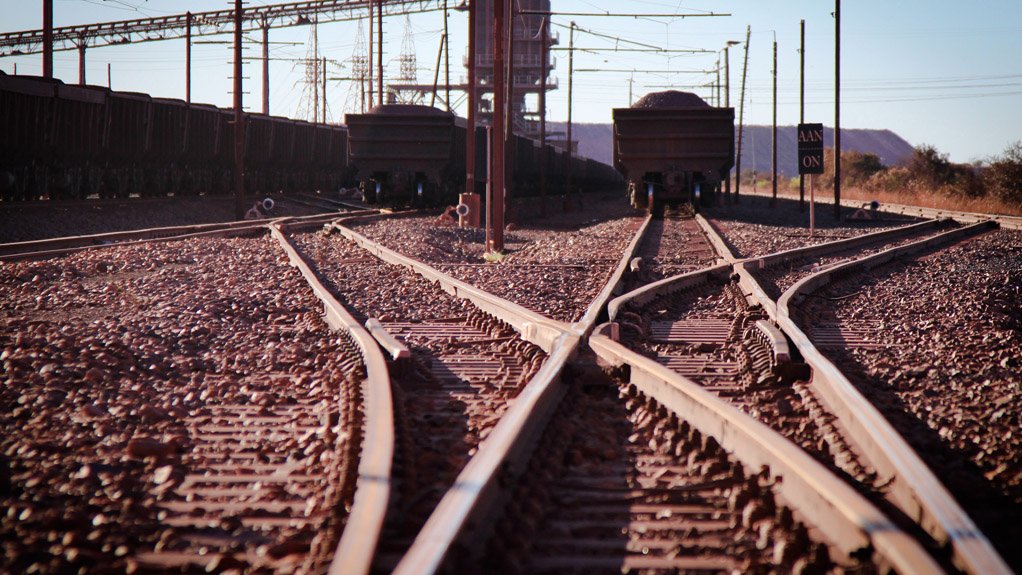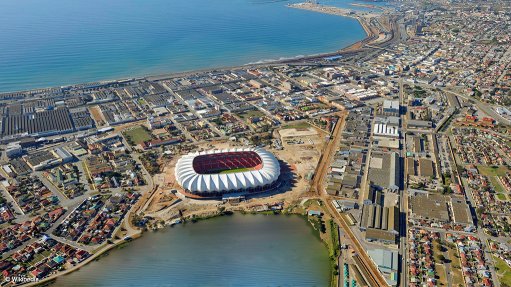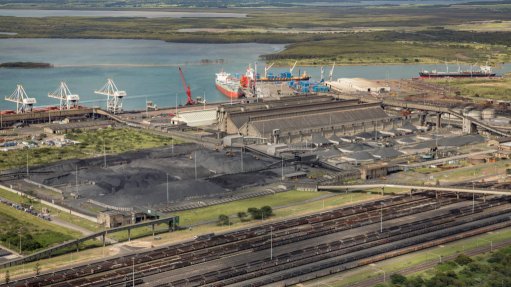Freight rail underperformance cost South Africa’s bulk mining sector R140bn in the last super cycle
Owing to domestic logistics constraints, South Africa’s coal and iron-ore bulk mining sectors were unable to capitalise on the last super cycle from 2021 to 2023, resulting in an estimated R140-billion in lost revenue for those two commodities alone, iron-ore miner Kumba Iron Ore CEO Mpumi Zikalala has said.
“Just imagine how much more value could have been created for all our multiple stakeholders and what we can do if we can produce and rail at full capacity when prices are high,” she said on the second day of the South African Heavy Haul Association (SAHHA) conference, on August 28, in Johannesburg.
She pointed out that, in contrast, other bulk mining nations, such as Brazil and Australia, were able to capitalise on the super cycle owing to more reliable freight logistics capabilities, leaving South Africa in the dust.
“The mining industry is cyclical, so a turnaround in the logistics performance has the potential to really transform our mining communities and contribute meaningfully to our broader country's economy,” Zikalala said.
She noted that South Africa’s underperforming freight rail network did not merely result in missed opportunities but also resulted in job losses and economic shrinkage.
“[Kumba] needed to be deliberate about restructuring our business model so that we could match our production to Transnet's performance. This has unfortunately led to massive job losses as production had to be sadly scaled back.
"In addition to this, we saw some of our fantastic business suppliers, and those suppliers include local community host suppliers, also losing some of the business opportunities that they had when it came to them working with either Kumba or other bulk miners. And this is not the first time,” she said.
In February, Mining Weekly reported that about 490 Kumba jobs were at risk owing to a proposed reconfiguration to mitigate the logistics challenge. Among these were fixed-term employees and contractors.
In addition, following the Section 189 process, a contractor or vendor review process was also initiated, which will see about 160 service providers and contractors impacted by rescoping their services or terminating their contracts.
At the time, Zikala said that, following a 2023 strategic review, the company had decided to reconfigure its business to an overall lower production profile of 35-million to 37-million tonnes for 2024 to 2026, in line with prevailing logistics capacity.
Speaking at the SAHHA conference, she pointed out that an important milestone in the reform of the Transnet Freight Rail network performance was achieved in March with the release of Transnet’s draft network statement (DNS).
However, Zikalala said the DNS introduced an existential threat to the mining industry by proposing a materially higher access charge than expected.
“The DNS clearly demonstrates how Transnet’s cross-subsidising in the past is unfortunately now threatening a significant part of the South African economy. Clearly, if logistics users alone have to pay for Transnet’s debt through inflated tariffs, consequences for the whole communities will be put at risk. A solution needs to be found to deal with Transnet’s historic debt,” she said.
She noted the desperation that had driven many mining companies to settle for a road freight transportation solution.
“The country is paying an unaffordable price in terms of road deaths and damage to the road network. We all know that this is an inappropriate model choice, and for those of us located over 800 km away from the ports, and . . . mining iron-ore, which is heavy, road is just not an option. We, therefore, have no choice but to work together to make the heavy haul railways network work like they should and do in other countries,” Zikalala said.
She encouraged the private and public sectors to work together to share the burden of reducing the cost of logistics and turning around heavy haul rail performance.
Article Enquiry
Email Article
Save Article
Feedback
To advertise email advertising@creamermedia.co.za or click here
Press Office
Announcements
What's On
Subscribe to improve your user experience...
Option 1 (equivalent of R125 a month):
Receive a weekly copy of Creamer Media's Engineering News & Mining Weekly magazine
(print copy for those in South Africa and e-magazine for those outside of South Africa)
Receive daily email newsletters
Access to full search results
Access archive of magazine back copies
Access to Projects in Progress
Access to ONE Research Report of your choice in PDF format
Option 2 (equivalent of R375 a month):
All benefits from Option 1
PLUS
Access to Creamer Media's Research Channel Africa for ALL Research Reports, in PDF format, on various industrial and mining sectors
including Electricity; Water; Energy Transition; Hydrogen; Roads, Rail and Ports; Coal; Gold; Platinum; Battery Metals; etc.
Already a subscriber?
Forgotten your password?
Receive weekly copy of Creamer Media's Engineering News & Mining Weekly magazine (print copy for those in South Africa and e-magazine for those outside of South Africa)
➕
Recieve daily email newsletters
➕
Access to full search results
➕
Access archive of magazine back copies
➕
Access to Projects in Progress
➕
Access to ONE Research Report of your choice in PDF format
RESEARCH CHANNEL AFRICA
R4500 (equivalent of R375 a month)
SUBSCRIBEAll benefits from Option 1
➕
Access to Creamer Media's Research Channel Africa for ALL Research Reports on various industrial and mining sectors, in PDF format, including on:
Electricity
➕
Water
➕
Energy Transition
➕
Hydrogen
➕
Roads, Rail and Ports
➕
Coal
➕
Gold
➕
Platinum
➕
Battery Metals
➕
etc.
Receive all benefits from Option 1 or Option 2 delivered to numerous people at your company
➕
Multiple User names and Passwords for simultaneous log-ins
➕
Intranet integration access to all in your organisation





















